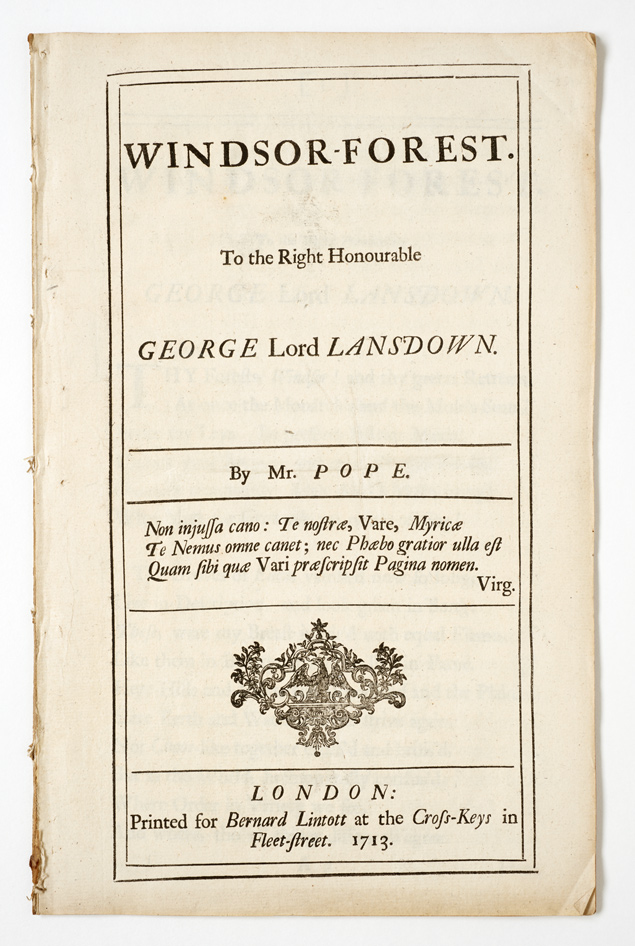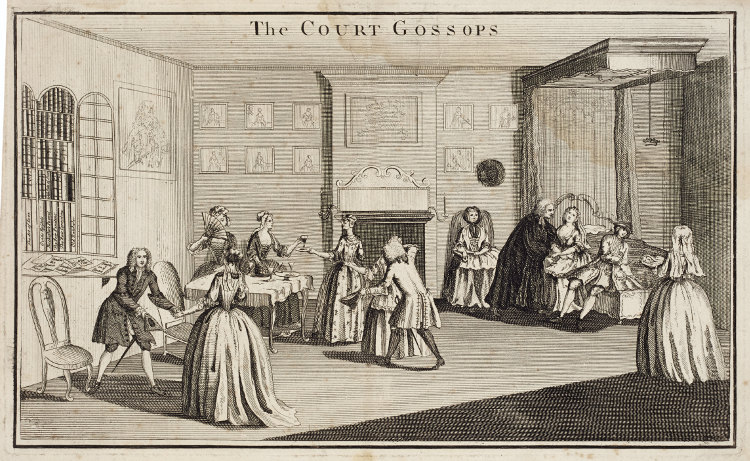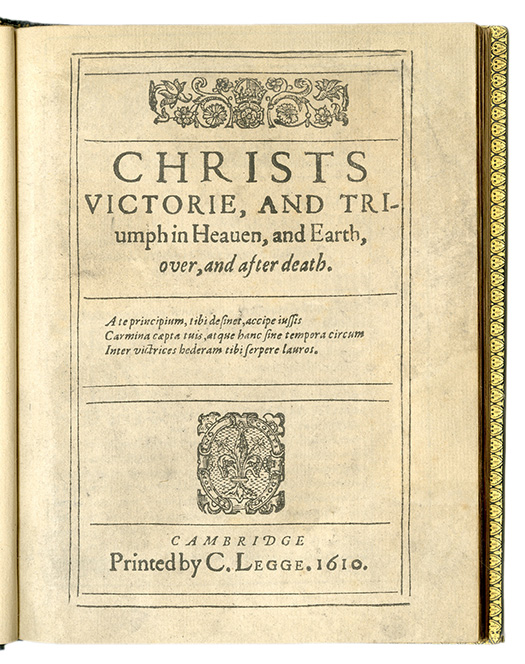
POPE, Alexander.
Windsor-Forest. To the Right Honourable George Lord Lansdown …
London: Printed for Bernard Lintott … 1713.
Folio, pp. [2], 18; slight spotting but a very good copy, disbound.
First edition of Pope’s second separately published poem, preceded by An Essay on Criticism in 1711. Written in the tradition that young poets begin with pastoral verse, Windsor-Forest, with its epigraph from Virgil’s Eclogues, was the poem that first won Swift’s regard and laid foundations for the ‘most celebrated literary friendship of the earlier eighteenth century’ (ODNB).
The poem takes its title from the royal forest which surrounded the farming village of Binfield in Berkshire, where Pope lived from the age of eleven – anti-Catholic legislation had forced his family to leave London in 1692. ‘Granted the idealization of the English countryside … the scenery it describes corresponds with remarkable accuracy to features actually present in the landscape’ (Maynard Mack). Pope rescued the earlier, descriptive, section of the poem from his own juvenilia. The conclusion, with its vision of the peace that was hoped for following the Treaty of Utrecht, gives it a political dimension. The oaks of Windsor Forest become a symbol of Englishness and, significantly for Pope, of the Stuarts. The prophecy that the trees will ‘rush’ bravely into the seas as new ships for naval conquests is a further endorsement for Queen Anne’s reign. ‘Non injussa cano’ begins the epigraph, ‘not without warrant I sing’ (Virgil, Eclogues, vi.9): Pope’s warrant for the concluding lines in particular was the encouragement of the dedicatee, the Tory statesman and poet, George Granville.
‘Pope was aware that the treaty of Utrecht … was supposed to give Britain increased access to the slave trade. Yet his concluding vision explicitly includes abolition of slavery (ll. 407–12). Among scores of poems on the peace, Windsor-Forest appears to be the only one to mention actual (not metaphorical) slavery and oppose it’ (ODNB).
Foxon P987; Griffith 9; Rothschild 1567.

